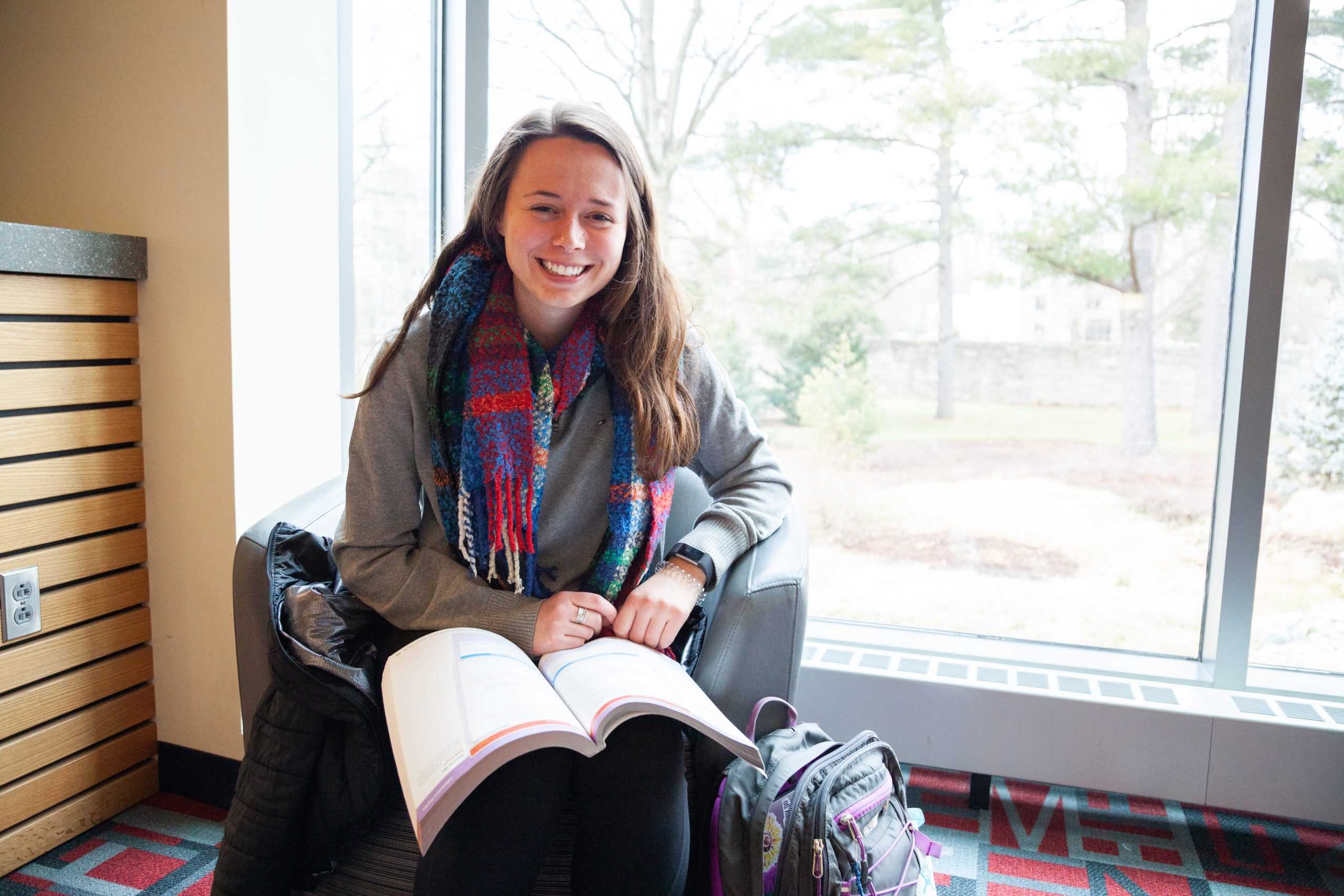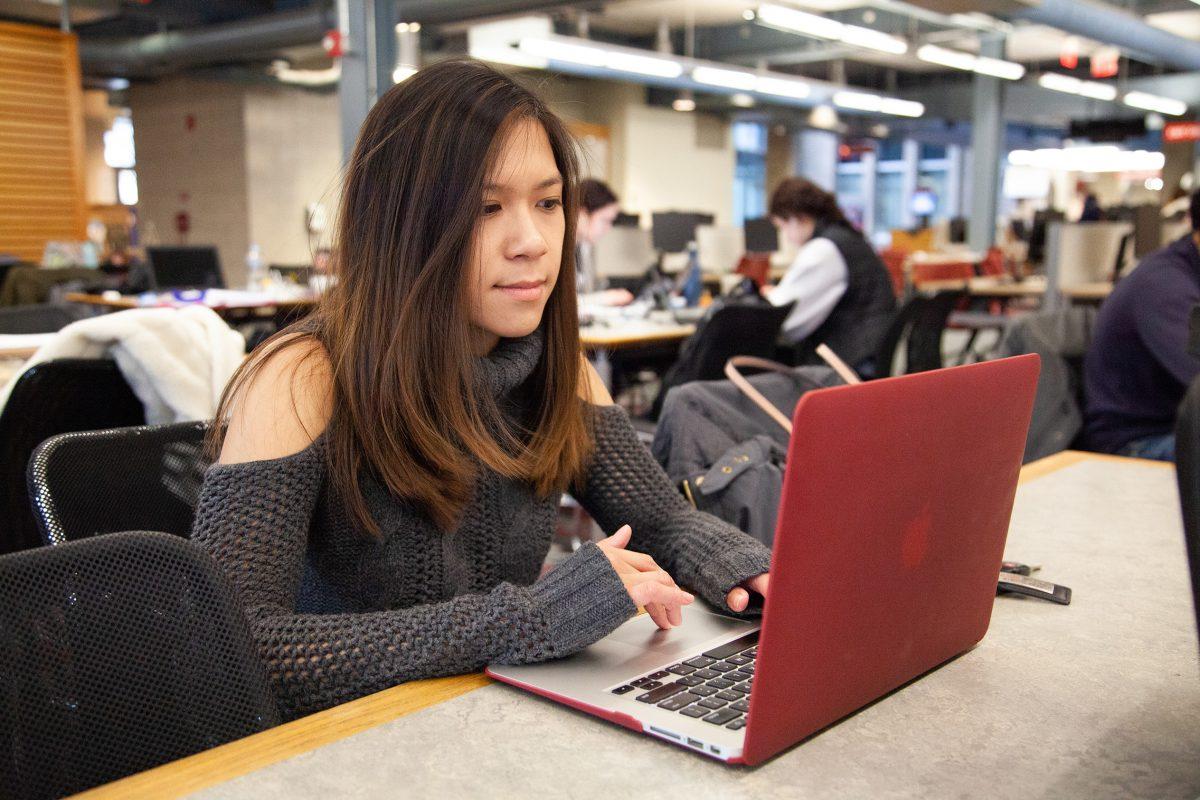Seven St. Joe’s students have been named semifinalists for fellowships with the Fulbright U.S. Student Program, making it the largest number of students to advance to the next phase.
Fulbright is a nationally competitive program that provides fully-funded fellowships to conduct research, complete a one-year master’s program or participate in an English Teaching Assistantship (ETA) in another country. About 10,000 people apply nationwide every year, and approximately 1,900 are awarded fellowships.
Of the seven St. Joe’s students named semifinalists, six of them are applying for ETA positions.
Mark Reynolds, Ph.D., director of the Office of Fellowships and associate professor of chemistry, said a record number of St. Joe’s students applied for Fulbright fellowships this year. In the past, between five to 15 students applied. This year, there were 24 applicants.
“It’s usually a good sign that you’re going to have multiple students who are going to be successful,” Reynolds said. “For a school our size and type, it’s a good number.”
Applicants for Fulbright choose not only the type of fellowship they want to apply for, but a specific country to apply to. Competitiveness varies from country to country, depending on how many people apply and how many the country accepts.
Colombia is one of the more competitive countries to win a fellowship for. In the past three years, they have gotten about 200 applicants and accepted between 20-30 percent of them.
Hanna Neece ’19 is a semifinalist for a fellowship in Colombia and plans to supple- ment her ETA with a project that involves working with single mothers in Colombia. She said she was drawn to Colombia because of experiences with people she knows from the country.
“One of my first Spanish teachers was from there,” Neece said. “One of my good friends from [when I studied abroad in] Chile is also Colombian, and he was so proud of his country and would always talk about the biodiversity there, the richness of the culture and how warm and friendly the people were.”
Reynolds said he thinks one reason the number of semifinalists is so high is also be- cause St. Joe’s equips students with the skills and experience Fulbright is looking for.
“I think we’re a good fit for it because the teaching, research, service and study abroad are things our students do,” Reynolds said. “The other part, of course, is being able to write well.”
Samantha Kominiarek ’19, a semifinalist for an ETA fellowship in Uruguay, has studied abroad in Spain, taught English to children at the Boston School of English and worked as a student teacher.

“I learned a lot [at St. Joe’s] about the teacher’s role in the classroom and how to help students learn,” Kominiarek said. “I think through all the experience I’ve gotten through working with different teachers and students, I’ve gotten such a good education that I’ll be able to embrace challenges.”
Reynolds said there is no GPA requirement to apply for Fulbright. Instead, the program looks to reward well-round- ed and experienced students.
“Some [fellowships] are very competitive and looking for people with 4.0 GPAs to apply,” Reynolds said. “Fulbright isn’t like that. They’re looking for students who are outstanding academically, but strong essays are a big component. Part of that is doing research on the country you want to visit and to know about it.”
Luigi Nuñez ’17 has applied for a graduate education fellowship with Maastricht University in the Netherlands.
“I applied to that school because of its strong international community and com- mitment to research and work that lends itself to the greater good,” Nuñez said. “My re- search at SJU was in operations research, and now I leverage that experience, and hopefully this degree, to maximize the use of data to inform decision-making in public health, so that more people can access high-quality health care, whenever they need it and without being financially burdensome.”
Angela Nguyen ’19, an elementary education and special education double major, is a semifinalist for a fellowship in Malta. She said she hopes her experience and her reason for wanting to pursue a fellowship set her apart.
“Some people do it because they want to go abroad and for the experience, but I want it for the education aspect,” Nguyen said. “Coming from an education background applying for Fulbright, it kind of changes things because you’re doing it for a different purpose.”
Although Nguyen is excited to be a semifinalist, she said waiting for the results is stressful because she cannot finalize her postgraduate plans.
“You also have to apply for grad school, jobs,” Nguyen said. “It’s just a lot of unknowns. I think that’s something that, as a senior, you just have to be comfortable with.”
Max Barrile ’18, who is a semifinalist for an ETA in the Czech Republic for the second year in a row, also said applying for Fulbright as a senior is stressful and much easier post-graduation.
Barrile said he feels more secure as he awaits an answer this year, as he already has other plans to work on political campaigns for the 2020 elections if he is not awarded a Fulbright.
“The pressure is not there [now] that was [there] when I was a senior,” Barrile said. “I was worried about what my next move was. I still don’t know [the outcome of Fulbright], but the path is a little bit clearer.”
After students are notified of the status as semifinalists, their proposals go on to be reviewed by the proposed host country. According to the Fulbright website, notification of selection can be expected anywhere from March 1 to May 31, depending on the country.














































